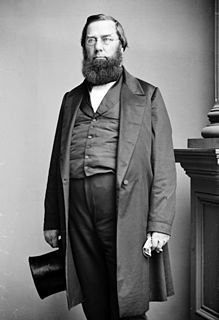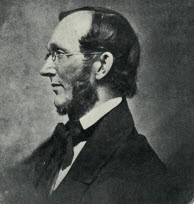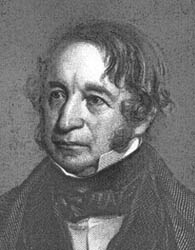Biography
This section does not cite any sources .(June 2018) (Learn how and when to remove this template message) |
She was a sister of James Russell Lowell, and their father, the Rev. Charles Russell Lowell Sr., was pastor of a Unitarian church from 1806 until he died in 1861. She had an aptitude for acquiring languages: she was eventually fluent in French, Italian, German, Polish, Swedish and Hungarian, and familiar with many other languages. She married Samuel R. Putnam in 1832 and later traveled abroad for several years.

James Russell Lowell was an American Romantic poet, critic, editor, and diplomat. He is associated with the Fireside Poets, a group of New England writers who were among the first American poets that rivaled the popularity of British poets. These writers usually used conventional forms and meters in their poetry, making them suitable for families entertaining at their fireside.
Charles Russell Lowell Sr. was a Unitarian minister and a son of judge John Lowell.
Putnam's literary work was confined to magazine writing until 1844, when she translated from the Swedish Fredrika Bremer's The Handmaid. [note 1] She contributed to the North American Review articles on Polish and Hungarian literature (1848–50), and to the Christian Examiner on the history of Hungary (1850–51). Her name became widely known when she became involved in a controversy with Francis Bowen, editor of the North American Review, regarding the war in Hungary. Bowen attacked the Hungarian revolutionists, whom she upheld.

Swedish is a North Germanic language spoken natively by 10 million people, predominantly in Sweden, and in parts of Finland, where it has equal legal standing with Finnish. It is largely mutually intelligible with Norwegian and to some extent with Danish, although the degree of mutual intelligibility is largely dependent on the dialect and accent of the speaker. Both Norwegian and Danish are generally easier for Swedish speakers to read than to listen to because of difference in accent and tone when speaking. Swedish is a descendant of Old Norse, the common language of the Germanic peoples living in Scandinavia during the Viking Era. It has the most speakers of the North Germanic languages.
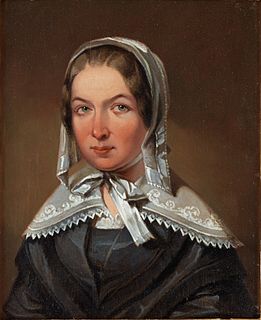
Fredrika Bremer was a Swedish writer and feminist reformer. Her Sketches of Everyday Life were wildly popular in Britain and the United States during the 1840s and 1850s and she is regarded as the Swedish Jane Austen, bringing the realist novel to prominence in Swedish literature. In her late 30s, she successfully petitioned King Charles XIV for emancipation from her brother's wardship; in her 50s, her novel Hertha prompted a social movement that granted all Swedish women legal majority at the age of 25 and established Högre Lärarinneseminariet, Sweden's first female tertiary school. It also inspired Sophie Adlersparre to begin publishing the Home Review, Sweden's first women's magazine. In 1884, she became the namesake of the Fredrika Bremer Association, the first women's rights organization in Sweden.
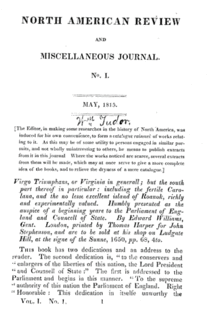
North American Review (NAR) was the first literary magazine in the United States. It was founded in Boston in 1815 by journalist Nathan Hale and others. It was published continuously until 1940, but was inactive from 1940 to 1964, until it was revived at Cornell College (Iowa) under Robert Dana. Since 1968, the University of Northern Iowa has been home to the publication. Nineteenth-century archives are freely available via Cornell University's Making of America.






